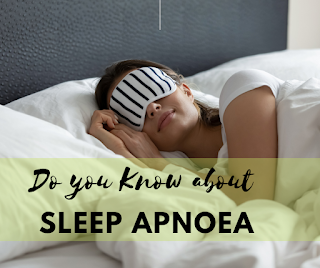In todays post, let us learn about Central Sleep Apnoea
Central sleep apnoea About 10% of patients with sleep disordered breathing have central sleep apnea (CSA).
Apnoea is a breathing pause of at least 10 second. Causes of Central Sleep Apnea The brain may be slow to recognise or not respond to changes in oxygen and carbon dioxide levels when breathing decreases.
This can occur in patients with longstanding obstructive sleep apnea due to dulling of the breathing reflexes. Heart failure may also cause central sleep apnea by causing a pattern of over-breathing followed by under-breathing or apnea due to slow circulation disturbing the normal reflex pathways.
Other causes in this pattern of CSA include some medications (particularly narcotics) or strokes affecting the breathing centres in the midbrain. In addition to the symptoms of disturbed sleep, there may be symptoms of carbon dioxide retention such as morning headache or confusion.
Assessment of Central Sleep Apnea Requires a thorough evaluation of all the possible causes including a sleep study. What can be done about Central Sleep Apnea? Medications – medications such as narcotics which may cause CSA may need to be reduced or stopped if possible.
There are some medications which stimulate breathing which may be trialled. Nasal CPAP may be effective. Home ventilation is sometimes very successful, particularly in the neuro muscular weakness/chest wall conditions which cause hypoventilation. If heart failure is present, this should be treated with medications, sometimes with the addition of oxygen therapy at night.
Do Read: Treatment for Sleep Apnoea
There is also a new type of auto/ventilator which has been specifically designed for the treatment of CSA due to heart failure which may also need to be trialled if other treatments have not worked.
A diaphragm pacemaker is occasionally recommended (has been used in spinal cord injury patients or in congenital hypoventilation syndrome).
Thanks a lot for reading, hope you have understood about Apnoea (Sleep Apnea) disesase, symptoms and its treatments.
Please share your comments /suggestions below, as always stay fit and healthy


No comments:
Post a Comment